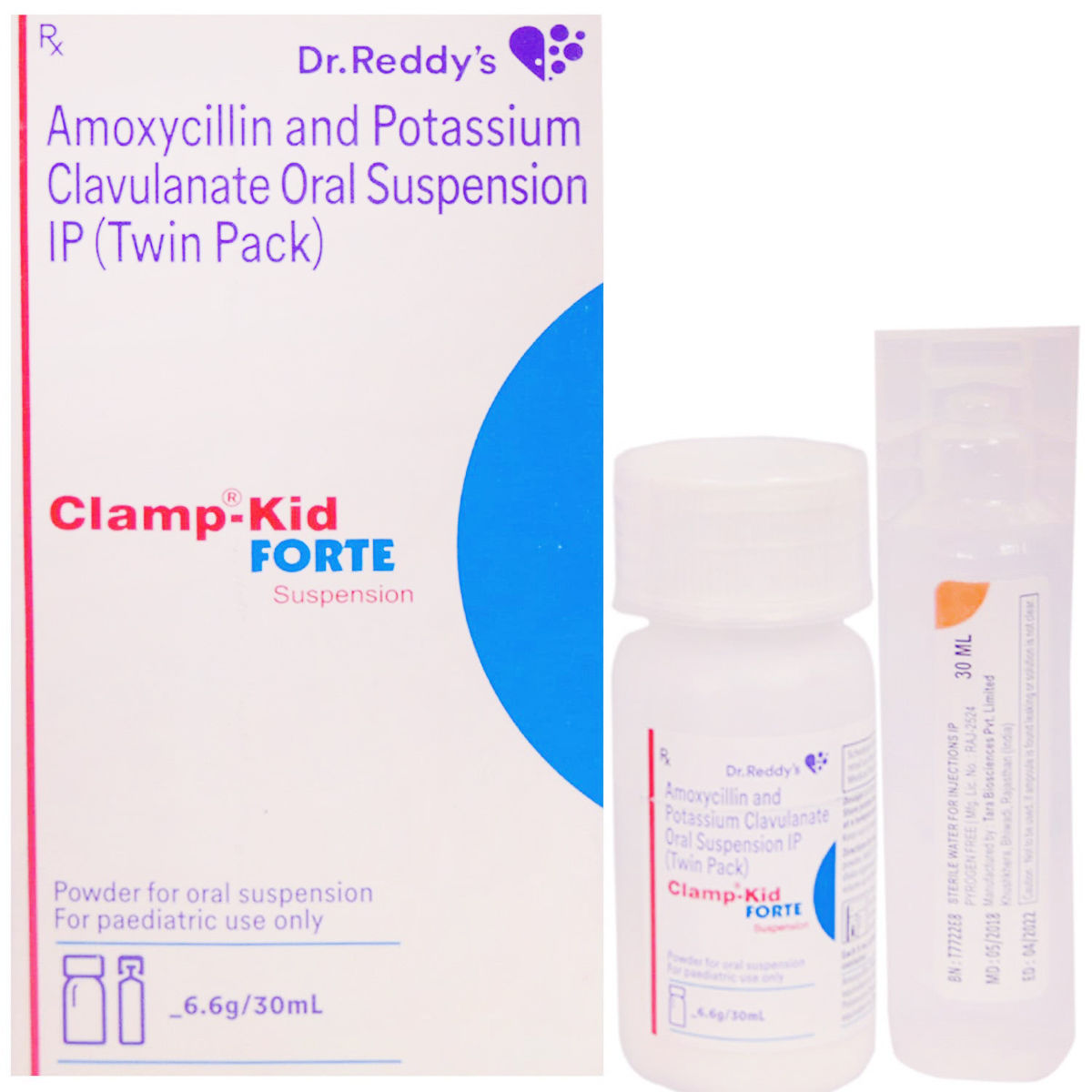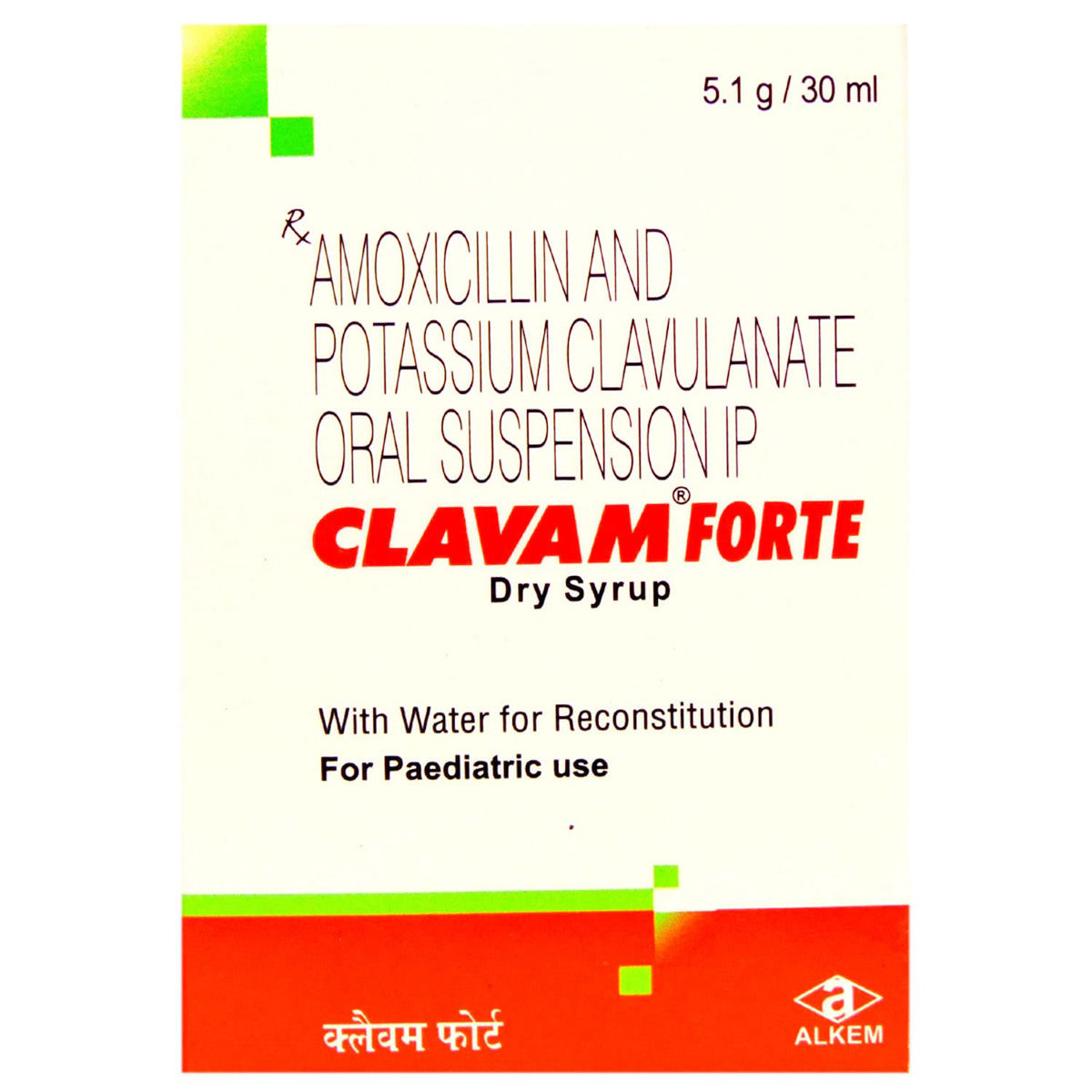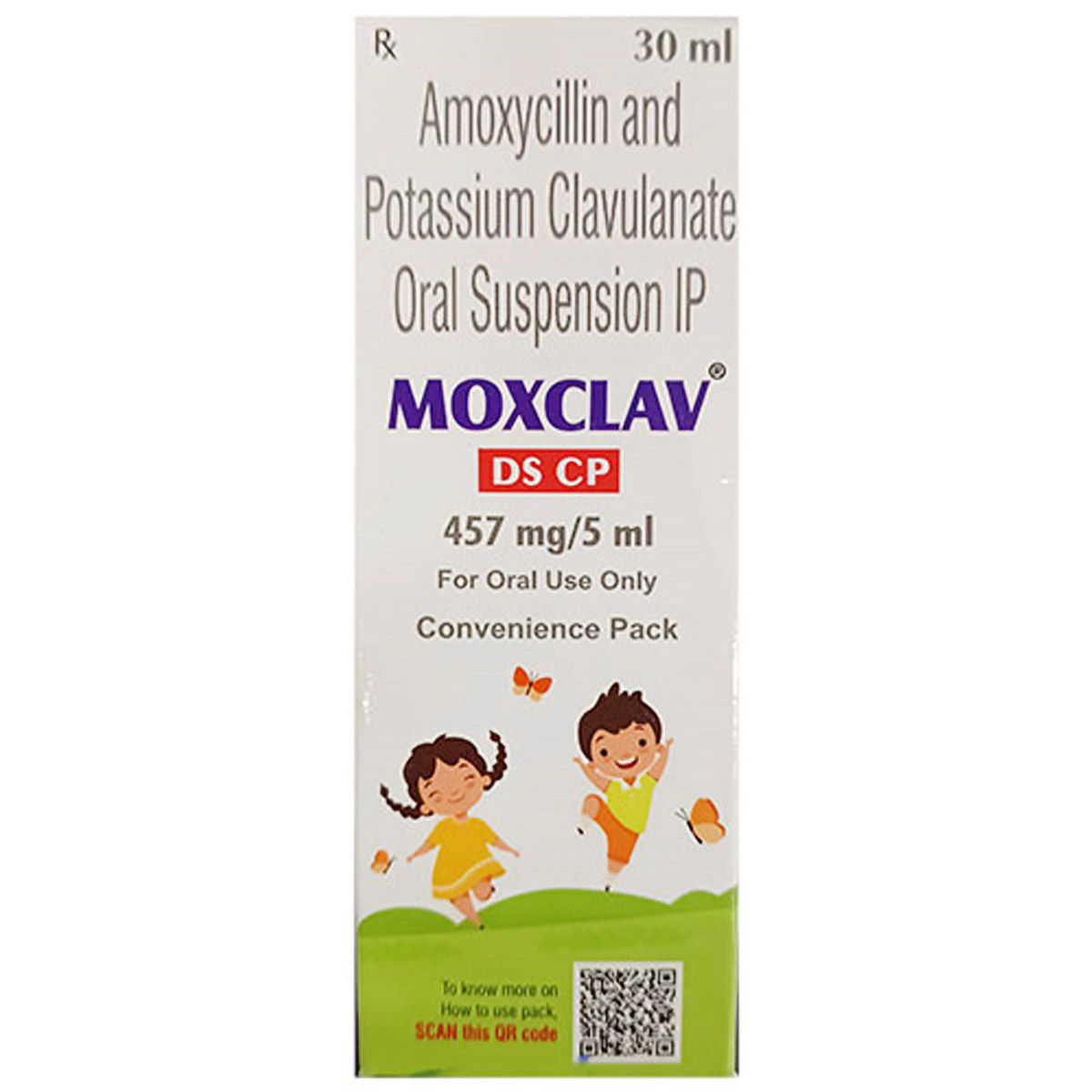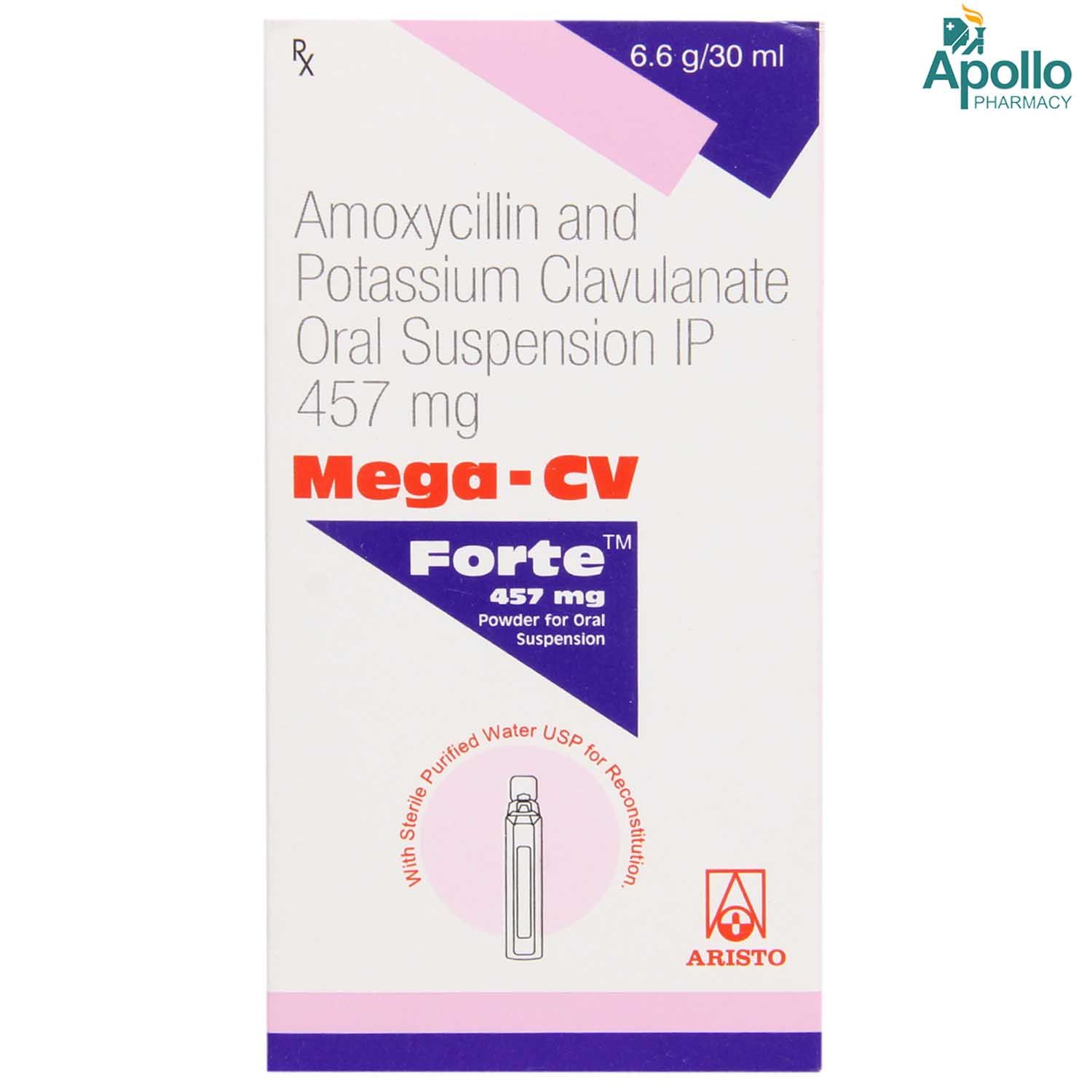Bactoclav DDS Syrup 30 ml



₹96.3*
MRP ₹107
10% off
₹90.95*
MRP ₹107
15% CB
₹16.05 cashback(15%)
Free Delivery
With Circle membership
(Inclusive of all Taxes)
This offer price is valid on orders above ₹800. Apply coupon PHARMA10/PHARMA18 (excluding restricted items)
Bactoclav DDS Syrup is an antibiotic medicine used to treat bacterial infections in children. It contains Amoxycillin and Clavulanic acid. Amoxycillin works by inhibiting the formation of the bacterial cell wall (a protective covering) and causing damage to the bacterial cell wall. This eventually leads to the death of the bacterial cell and thus prevents the growth of bacterial infections. Clavulanic acid inhibits the beta-lactamase enzyme, which prevents bacteria from destroying the efficacy of amoxycillin. It may cause side effects like indigestion, diarrhoea, nausea, and stomach pain.
Know Your Delivery Time
Provide Delivery Location
Available Offers
 Prescription drug
Prescription drugWhats That

Secure Payment

India's Most Trusted Pharmacy

Genuine Products
Composition :
Manufacturer/Marketer :
Consume Type :
Return Policy :
Expires on or after :
About Bactoclav DDS Syrup
Bactoclav DDS Syrup is an antibiotic medicine used to treat bacterial infections in children. It is used to treat infections of the skin, throat, ear, and lungs caused by bacteria. A bacterial infection occurs when harmful bacteria enter and grow in the body. These bacteria can infect any part of the body and multiply very quickly. Bactoclav DDS Syrup effectively treats infections caused by bacteria only and does not treat viral infections like flu or a common cold.
Bactoclav DDS Syrup is a combination medicine containing Amoxycillin (penicillin- antibiotic) and Clavulanic acid. Amoxycillin works by inhibiting the formation of the bacterial cell wall (a protective covering) and causing damage to the bacterial cell wall. This eventually leads to the death of the bacterial cell and thus prevents the growth of bacterial infections. Clavulanic acid inhibits the beta-lactamase enzyme, which prevents bacteria from destroying the efficacy of amoxycillin.
Bactoclav DDS Syrup may cause certain side effects in your child, such as indigestion, diarrhoea, nausea, and stomach pain. These side effects do not require medical attention and gradually resolve over time. However, if the side effects persist or worsen, please consult your paediatrician. Bactoclav DDS Syrup should be taken as advised by your doctor. Do not give more than the prescribed dose of Bactoclav DDS Syrup to the child. Generally, the dose of the medicine will be decided by your paediatrician depending upon the type and severity of the infection.
Bactoclav DDS Syrup is intended for pediatric use only. Avoid giving Bactoclav DDS Syrup to your child if she/he is allergic to antibiotics. Keep your doctor informed about your child’s health condition, including his current medications and medical history, to rule out any side effects/interactions. Before administration, inform your child’s doctor about liver and kidney disease.
Uses of Bactoclav DDS Syrup
Directions for Use
Medicinal Benefits
Bactoclav DDS Syrup is a combination medicine containing Amoxycillin and Clavulanic acid. It is a broad-spectrum penicillin-type antibiotic that acts against both aerobic (grow in the presence of oxygen) and anaerobic (grow in the absence of oxygen) bacteria. Bactoclav DDS Syrup is used to treat bacterial infections in children. Bactoclav DDS Syrup works by inhibiting the formation of the bacterial cell wall (a protective covering) and causing damage to the bacterial cell wall. This eventually leads to the death of the bacterial cell and thus prevents the growth of bacterial infections. Clavulanic acid inhibits the beta-lactamase enzyme, which prevents bacteria from destroying the efficacy of amoxycillin.
How Bactoclav DDS Syrup Works
Storage
Side Effects of Bactoclav DDS Syrup
- Nausea
- Diarrhoea
- Stomach upset
- Indigestion
- Vomiting
Drug Warnings
Avoid giving Bactoclav DDS Syrup to your child if she/he is allergic to it. Keep your paediatrician informed about your child’s health condition, including their previous medications and medical history, to rule out any side effects/interactions. It is advised not to give more than the prescribed dose of medicine. Also, inform your doctor if your child has liver or kidney-related issues before administration.
Drug-Drug Interactions
Drug-Drug Interactions
Login/Sign Up
Co-administration of methotrexate with Bactoclav DDS Syrup 30 ml can increase the levels and side effects of methotrexate.
How to manage the interaction:
Although there is a possible interaction between methotrexate and Bactoclav DDS Syrup 30 ml, you can take these medicines together if prescribed by your doctor. However, if you experience any symptoms such as tiredness, dizziness, fainting, unusual bleeding or bruising, chills, fever, sore throat, body pains. Consult a doctor immediately. Do not stop using medications without a doctor's advice.
Co-administration of BCG vaccine with Bactoclav DDS Syrup 30 ml may reduce the effect of BCG vaccine.
How to manage the interaction:
If you are about to receive BCG vaccine, inform the doctor that you are taking Bactoclav DDS Syrup 30 ml. Do not discontinue the medication without consulting a doctor.
Co-administration of Bactoclav DDS Syrup 30 ml with doxycycline may reduce the therapeutic effect of Bactoclav DDS Syrup 30 ml.
How to manage the interaction:
Although there is a possible interaction between Bactoclav DDS Syrup 30 ml and Doxycycline, you can take these medicines together if prescribed by your doctor. Do not stop using any medications without consulting a doctor.
Co-administration of Bactoclav DDS Syrup 30 ml and Cholera, live attenuated may reduce the activity of the vaccine.
How to manage the interaction:
If you are currently being treated with Bactoclav DDS Syrup 30 ml or have been treated within the last 14 days, talk to your doctor before receiving cholera vaccine, live. Do not discontinue the medication without consulting a doctor.
Co-administration of Bactoclav DDS Syrup 30 ml and Zalcitabine can be decreased when combined with Bactoclav DDS Syrup 30 ml.
How to manage the interaction:
There may be a possibility of interaction between Zalcitabine and Bactoclav DDS Syrup 30 ml, but it can be taken if prescribed by a doctor. Do not discontinue any medications without consulting a doctor.
Drug-Food Interactions
Drug-Food Interactions
Login/Sign Up
Diet & Lifestyle Advise
- Increase your child's intake of foods high in fibre. Your gut bacteria can readily break down fibre, which promotes growth.
- Foods high in fibre may aid in the restoration of good gut flora following an antibiotic course.
- Avoid foods high in iron or excessive calcium, as these may interfere with Bactoclav DDS Syrup's functionality.
- Encourage your kid to consume more liquids to prevent dehydration.
Habit Forming
Therapeutic Class
Bactoclav DDS Syrup Substitute

Megamox-CV Duo Dry Syrup 30 ml
by Others
₹6.73per tabletAugmentin DDS Syrup 30 ml
by Others
₹5.70per tabletClamp-Kid Forte Suspension 30 ml
by Others
₹7.08per tabletAdvent Forte 457 mg Tangy Orange Flavour Syrup 60 ml
by Others
₹4.34per tabletAdvent Forte Syrup 30 ml
by Others
₹7.02per tablet
Product Substitutes
Alcohol
Not applicable
-
Pregnancy
Not applicable
-
Breast Feeding
Not applicable
-
Driving
Not applicable
-
Liver
Consult your doctor
Please consult your doctor if your child has a liver impairment or if you have any concerns regarding this.
Kidney
Consult your doctor
Please consult your doctor if your child has kidney impairment or if you have any concerns regarding this.
Children
Safe if prescribed
Bactoclav DDS Syrup is safe for children if prescribed by the doctor. Your paediatrician will decide the dose of the medicine. Do not give your child more than the recommended dose.
FAQs
Country of origin
Manufacturer/Marketer address
Disclaimer
Author Details
We provide you with authentic, trustworthy and relevant information

























